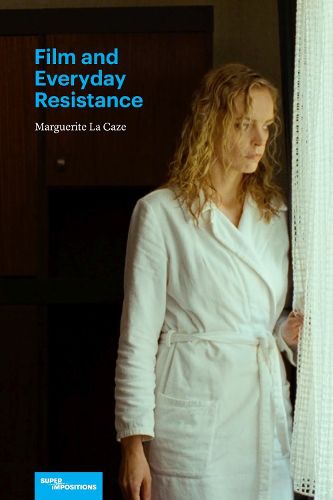Readings Newsletter
Become a Readings Member to make your shopping experience even easier.
Sign in or sign up for free!
You’re not far away from qualifying for FREE standard shipping within Australia
You’ve qualified for FREE standard shipping within Australia
The cart is loading…






A philosophical exploration of how modern global cinema represents everyday means of resisting authoritarianism and totalitarianism VAclav Havel's concept of "living within the truth" in an authoritarian regime frames Marguerite La Caze's readings of international cinema, highlighting forms of resistance in which seemingly pre- or nonpolitical aspects of life-such as professional labor, exile, and truth telling-can be recognized as political when seen against a backdrop of general acquiescence. La Caze's case studies cross genres, historical eras, and national contexts: the apartheid regime in South Africa, in A Dry White Season; post-Suharto Indonesia, in The Look of Silence; 1980s East Germany, in Barbara; the Chilean military dictatorship, in No; contemporary Iran, in A Separation; and current-day Saudi Arabia, in Wadjda. This book explores the films' use of image, sound, narrative, and character in dialogue with the work of Simone de Beauvoir, AimE Cesaire, Hannah Arendt, Sara Ahmed, and W. E. B. Du Bois to reveal how cinema depicts ordinary people enacting their own philosophies of defiance.
$9.00 standard shipping within Australia
FREE standard shipping within Australia for orders over $100.00
Express & International shipping calculated at checkout
A philosophical exploration of how modern global cinema represents everyday means of resisting authoritarianism and totalitarianism VAclav Havel's concept of "living within the truth" in an authoritarian regime frames Marguerite La Caze's readings of international cinema, highlighting forms of resistance in which seemingly pre- or nonpolitical aspects of life-such as professional labor, exile, and truth telling-can be recognized as political when seen against a backdrop of general acquiescence. La Caze's case studies cross genres, historical eras, and national contexts: the apartheid regime in South Africa, in A Dry White Season; post-Suharto Indonesia, in The Look of Silence; 1980s East Germany, in Barbara; the Chilean military dictatorship, in No; contemporary Iran, in A Separation; and current-day Saudi Arabia, in Wadjda. This book explores the films' use of image, sound, narrative, and character in dialogue with the work of Simone de Beauvoir, AimE Cesaire, Hannah Arendt, Sara Ahmed, and W. E. B. Du Bois to reveal how cinema depicts ordinary people enacting their own philosophies of defiance.